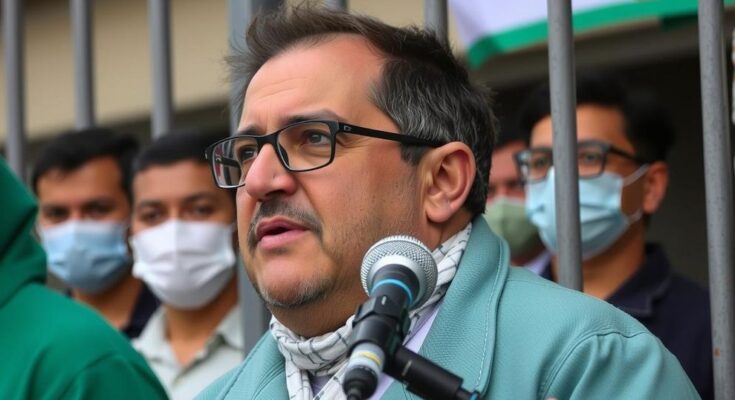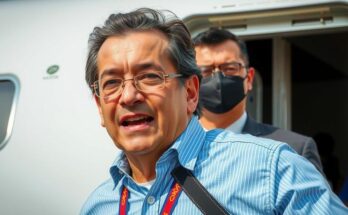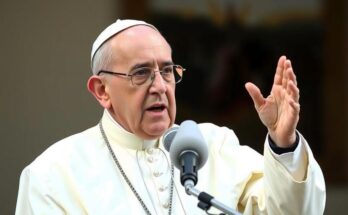Said Ait Mahdi, a Moroccan activist, was sentenced to three months in prison after leading protests against the government’s earthquake response. His conviction has drawn criticism from human rights advocates as politically motivated. The earthquake left nearly 3,000 dead and damaged thousands of homes, prompting protests due to perceived mismanagement of recovery efforts. This case highlights broader issues of civil liberties and government accountability in Morocco.
Said Ait Mahdi, a prominent Moroccan activist, has received a three-month prison sentence following his leadership in protests against the government’s response to the devastating September 2023 earthquake in the Al Haouz region. This natural disaster resulted in nearly 3,000 fatalities, widespread destruction of infrastructure, and ongoing hardships for survivors. Ait Mahdi faced various charges, including defamation and inciting unauthorized demonstrations. His legal counsel highlighted the arbitrary nature of the sentence, asserting that it serves as retaliation for his advocacy efforts. Meanwhile, other activists involved in similar protests have been acquitted, suggesting a complex judicial response to dissent in Morocco.
Subsequent to the earthquake, significant local unrest arose as communities criticized the perceived inadequate recovery efforts by local authorities. This unrest has drawn attention to existing social inequalities in the region, particularly affecting indigenous minority groups. Protests asserting accountability and better recovery strategies persist in towns and cities, placing pressure on the Moroccan government to enhance its response. The Moroccan Association for Human Rights has labeled Ait Mahdi’s arrest as arbitrary, emphasizing concerns over civil liberties and state repression against activists.
Morocco’s government has committed substantial financial resources to addressing the aftermath of the earthquake, with over $11.5 billion allocated towards rebuilding homes, schools, and community infrastructure. However, activists maintain that the slow pace of reconstruction remains a critical issue requiring governmental attention. Notably, Ait Mahdi has been recognized as a significant voice advocating for earthquake victims and their rights.
As this case unfolds, it represents a microcosm of the broader struggle for human rights and governmental accountability in Morocco. The profound impacts of the earthquake and the resultant political implications continue to shape the conversation around civil liberty in the nation.
The September 2023 6.8-magnitude earthquake in Morocco’s Al Haouz region caused extensive damage, killing nearly 3,000 people and displacing thousands. This cataclysm has intensified scrutiny over the government’s recovery efforts, particularly in areas where indigenous minority groups reside, highlighting pre-existing socio-economic disparities. Following the earthquake, protests arose among affected communities, accusing authorities of mismanagement in disaster response and recovery. The activism surrounding these protests has led to legal actions against prominent figures, sparking concerns of political repression and human rights violations in Morocco. Civil liberties groups continue to advocate for a transparent and equitable recovery process, as the government assures financial support for rebuilding efforts.
The sentencing of Said Ait Mahdi underscores the tensions between government authority and civil activism in Morocco. The consequences faced by Ait Mahdi illustrate the precarious nature of dissent in the wake of a national disaster, where advocating for victims’ rights can lead to punitive measures. As reconstruction efforts progress, the ongoing activism and legal battles highlight an urgent need for accountability in governance and justice for those affected by the earthquake.
Original Source: www.independent.co.uk




